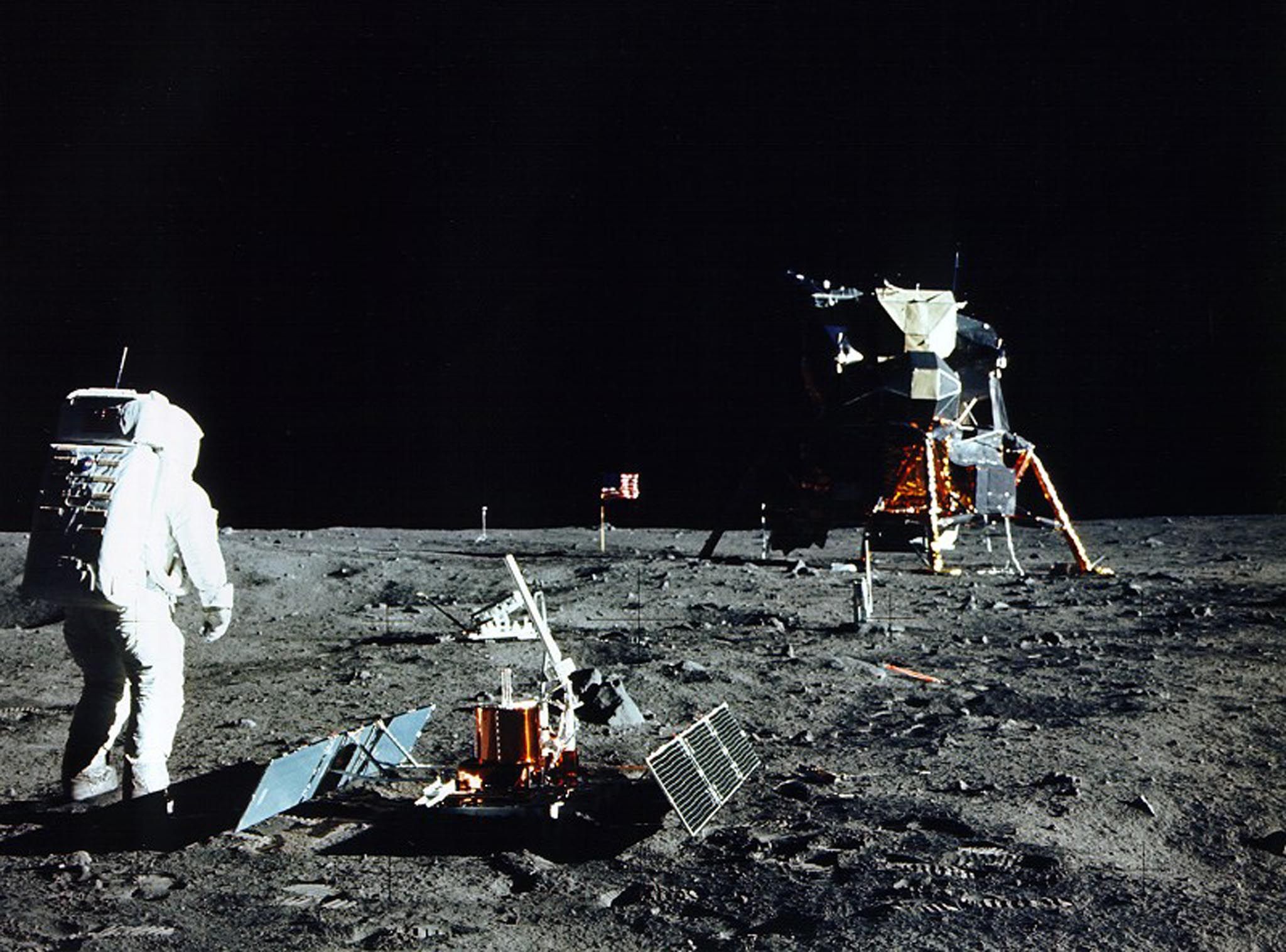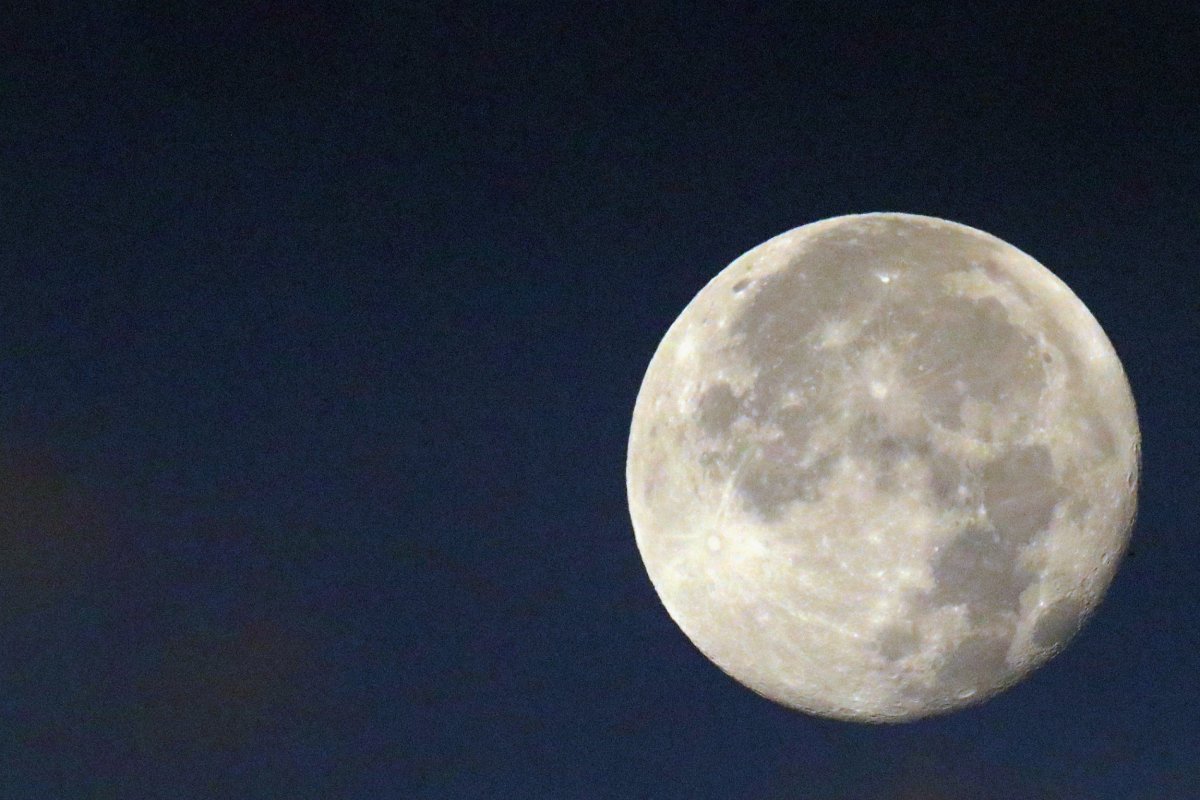
NASA is getting ready to send astronauts back to the Moon. It plans to have American feet on the lunar surface "no later than the late 2020s."
"This will be the first chance for the majority of people alive today to witness a Moon landing—a moment when, in awe and wonder, the world holds its breath," the agency said in a statement.
The last time a human set foot on the surface of the moon was in 1972. Eugene Cernan, with the Apollo 17 mission, completed three excursions to lunar craters over three days. As he left, he said: "America's challenge of today has forged man's destiny of tomorrow. As we leave the moon and Taurus-Littrow, we leave as we came, and, God willing, we shall return, with peace and hope for all mankind."
NASA ended the Apollo program as a result of budgetary constraints. It shifted its focus towards other space exploration activities. According to Scientific American, the cancellation was also the result in a dip in public interest and heightened concerns about the risks of such missions.
Almost 50 years later, President Donald Trump signed a new directive telling NASA to lead a "sustainable program of exploration" that would allow humans to move further into the solar system—"to bring back to Earth new knowledge and opportunities." And the moon is one of the first points of call.
The moon, NASA says, is an important gateway to space travel. Creating a permanent base both on the moon and in its orbit will provide astronauts a platform from which they can blast off further afield—Mars being one of the key targets for future exploration.
A lunar orbiter would be established by 2023, NASA said. "On the Gateway, America and its partners will prepare to transit deep space, testing new technologies and systems as we build the infrastructure to support missions to the surface of the Moon and prepare for the epochal mission to Mars," the statement said. "NASA also will study the effects of the deep space environment of the Gateway, learning how living organisms react to the radiation and microgravity of a deep space environment over long periods."
Some parts of the Gateway are already being built, but like the International Space Station, it will mostly be assembled in space. Once this is up and running, humans can go down to the lunar surface.

"By the late 2020s, a lunar lander capable of transporting crews and cargo will begin trips to the surface of the Moon," the statement continued. "The sustainable, long-term lunar surface activities enabled by these efforts, in tandem with the Gateway, will expand and diversify over time, taking advantage of the Moon and near space for scientific exploration in the broadest sense."
To read the full Exploration Campaign click here.
As well as providing a platform to travel further into space, the Moon is also seen as an attractive target for exploration for the extremely valuable natural resources it potentially offers. Mining on the Moon has been subject to debate over the last decade, with an increasing number of nations turning their attention to the monetary value of harvesting lunar resources. This is also something the U.S. government has shown an interest in.
Last month, the U.S. Geological Survey (USGS) said it has been paying "close attention" to space resources and is preparing for the government's call. Laszlo Kestay, a research geologist at the USGS Astrogeology Science Center, told Space.com: "The USGS realized that our congressional mandate to assess natural resources extends to space.
"At this point, we have done enough work to feel confident that the methods the USGS uses to assess mineral, energy and water resources on Earth can be used to assess space resources with minimal modification. We have also done enough preliminary work to identify some areas where humanity's lack of knowledge will result in exceedingly large uncertainties in assessments undertaken today."
Uncommon Knowledge
Newsweek is committed to challenging conventional wisdom and finding connections in the search for common ground.
Newsweek is committed to challenging conventional wisdom and finding connections in the search for common ground.
About the writer
Hannah Osborne is Nesweek's Science Editor, based in London, UK. Hannah joined Newsweek in 2017 from IBTimes UK. She is ... Read more
To read how Newsweek uses AI as a newsroom tool, Click here.








